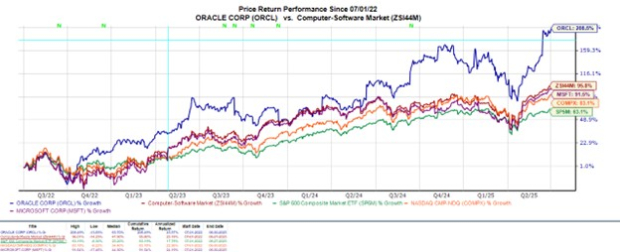
Upon hearing the term “estate sale,” one might conjure images of opulent events held by the elite. In reality, an estate sale is simply a formalized event where an individual’s possessions are put up for sale, usually after they have passed away or relocated. Unlike your average garage or yard sale, an estate sale is a comprehensive liquidation, often encompassing an entire household’s worth of contents. This grand gesture may be necessary for settling the debts of the deceased or distributing their assets among heirs. Other circumstances, such as divorce or downsizing, could also prompt an estate sale.
Tap into the expertise of a financial advisor to review your assets and strategize for the future.
Understanding the Estate Sale Concept
Essentially, an estate sale, also known as a tag sale in certain regions, is a means of selling off a family’s or estate’s belongings. While anyone can organize an estate sale, it is predominantly managed by professional estate sale companies that evaluate items based on their current market value.
An estate sale can encompass a wide array of items owned by the estate. These may range from everyday household items like furniture, kitchenware, and garments to more valuable possessions such as antiques, jewelry, works of art, and even vehicles. In certain cases, the property itself may be part of the estate sale.
It’s essential to note that estate sales are not exclusive to situations where an individual has passed away. Other scenarios that could prompt an estate sale include:
- Divorce: Couples seeking to divide shared assets may employ an estate sale to facilitate this process.
- Downsizing: Individuals looking to downsize may need to declutter and sell off excess belongings before moving to a smaller residence.
- Bankruptcy: In some cases, assets might need to be liquidated to meet financial obligations.
Contrasting Estate Sale with Garage Sale
While both involve the sale of pre-owned items, estate and garage sales differ considerably in terms of scale, intention, and organization.
Firstly, their merchandise often varies significantly. Estate sales often feature an extensive range of goods, including high-value items, encompassing an entire household’s worth of possessions. On the other hand, garage sales typically involve everyday items like second-hand clothing or outdated electronics.
The organization and pricing strategies also diverge substantially. Estate sales are typically orchestrated by professional estate sale companies that price items based on their prevailing market value, whereas garage sales are often do-it-yourself initiatives, with sellers setting prices based on their discretion. Moreover, the fundamental objective of the sale is distinct: while estate sales serve the purpose of liquidating a substantial portion of an individual’s belongings, garage and yard sales are primarily to declutter and make some extra cash.
The Role of Estate Sale Companies

Estate sale companies assume a pivotal role in the orchestration of these sales, overseeing the entire process from inception to conclusion. By handling intricate tasks such as item appraisal, preparation and display of merchandise, market-based pricing, promotional efforts to attract potential buyers, and on-site management during the sale event, these companies alleviate a significant burden for the estate’s representatives.
Consider an estate sale featuring items such as antique furniture or rare collectibles. Their precise valuation necessitates expertise. Here, estate sale companies leverage their industry knowledge and experience to ensure diligent pricing, aiming to maximize proceeds for the estate. Nonetheless, it’s crucial to bear in mind that although these companies strive for optimal outcomes, results may vary based on numerous factors.
Upon grasping the significance of these entities, the selection of a suitable estate sale company assumes critical importance. Prospective clients should factor in aspects such as the company’s tenure, fee structure, and reputation.
A company’s track record often serves as a gauge of its dependability and professionalism. Evaluating the types of estates they have managed previously as well as customer testimonials can provide valuable insights. For instance, a company adept at handling substantial estates with high-value items could be an excellent fit for a similar estate.
The cost of engaging an estate sale company can fluctuate due to various factors. These firms typically levy a percentage of the total sale proceeds – around 30-50%, as specified by the National Estate Sales Association. However, this percentage can vary based on the company and the estate’s specifics. Some companies may impose a flat fee, while others might entail additional charges for services such as waste disposal or specialized appraisals.
Pricing Dynamics in Estate Sales
Estate sale companies bring their expertise to the forefront during the pricing phase. Proficient in valuing rare and antique items, they lend their capability in pricing items to ensure a timely sale. Their remuneration, often a percentage of total sales, is factored into item pricing, conceivably impacting prices marginally.
Estate sale pricing melds various criteria, including item condition, rarity, and market demand. Buyers can anticipate a spectrum of price points at an estate sale. Household items might be pegged at rates akin to garage sale merchandise, whereas rare collectibles might command prices closer to their appraised values.
Estate Sale Day: A Snapshot

Understanding
Understanding The Dynamics Of An Estate Sale
The process of holding an estate sale has many moving parts. Understanding what happens during an estate sale can help you prepare effectively and ensure a smooth process.
The Setup Process
The day often begins with an early morning setup where estate sale professionals meticulously arrange items for optimal visibility. A critical step, as the presentation significantly impacts how quickly and for how much the items sell.
Estate sale companies handle a variety of tasks, from staging the home and pricing items based on their market value, to advertising the sale and managing transactions. With their expertise, they can effectively organize and price items to attract buyers and yield the best possible returns.
Following the setup, the sale usually opens, often with a line of eager buyers waiting outside. It’s not uncommon for passionate buyers to show up early, searching for unique finds or unexpected gems.
The Sales Day
The rest of the day is typically a bustle of transactions as various items are sold. Pricing at these sales is usually based on market value. However, as the day progresses, estate sale companies may offer discounts to encourage sales of remaining items.
Depending on the size of the estate, the sale could continue for several days until all items are sold or the estate sale ends. A typical estate sale might start at 8 a.m. or 9 a.m., with the busiest hours usually in the morning when the most desirable items are still available.
Potential Profits
So how much can a person or family make from an estate sale? That all depends.
For instance, the size of the estate and the quality and rarity of the items can significantly sway the potential profits. A larger estate brimming with high-quality antiques, rare collectibles or designer items is likely to pique interest and command higher bids.
Another influential factor is the location of the sale. An estate sale in an area known for its appreciation of antiques may draw buyers willing to spend more.
The profits from estate sales are typically used to pay off debts, cover living expenses or even be invested for future use by heirs. Regardless, these sales can potentially provide significant financial relief for individuals during challenging times.
Final Thoughts
Estate sales differ in purpose, scale, and organization when compared with garage sales, and are typically held after a major life event like a death, divorce, or downsizing. The critical role of estate sale companies in facilitating these sales, coupled with the complex process of pricing items and managing day-of-sale activities, contributes to the overall success of the event.
Estate Planning Tips
- Keep in mind that you may still need a will even if you establish a trust to hold and distribute assets to beneficiaries when you die.
- A financial advisor with estate planning expertise can help you navigate this important planning process. Finding a financial advisor doesn’t have to be hard. SmartAsset’s free tool matches you with up to three vetted financial advisors who serve your area, and you can have a free introductory call with your advisor matches to decide which one you feel is right for you. If you’re ready to find an advisor who can help you achieve your financial goals, get started now.
Photo credit: ©iStock.com/Khosrork, ©iStock.com/Capuski, ©iStock.com/Oralleff
The post What Is an Estate Sale and How Does It Work? appeared first on SmartReads by SmartAsset.
The views and opinions expressed herein are the views and opinions of the author and do not necessarily reflect those of Nasdaq, Inc.







